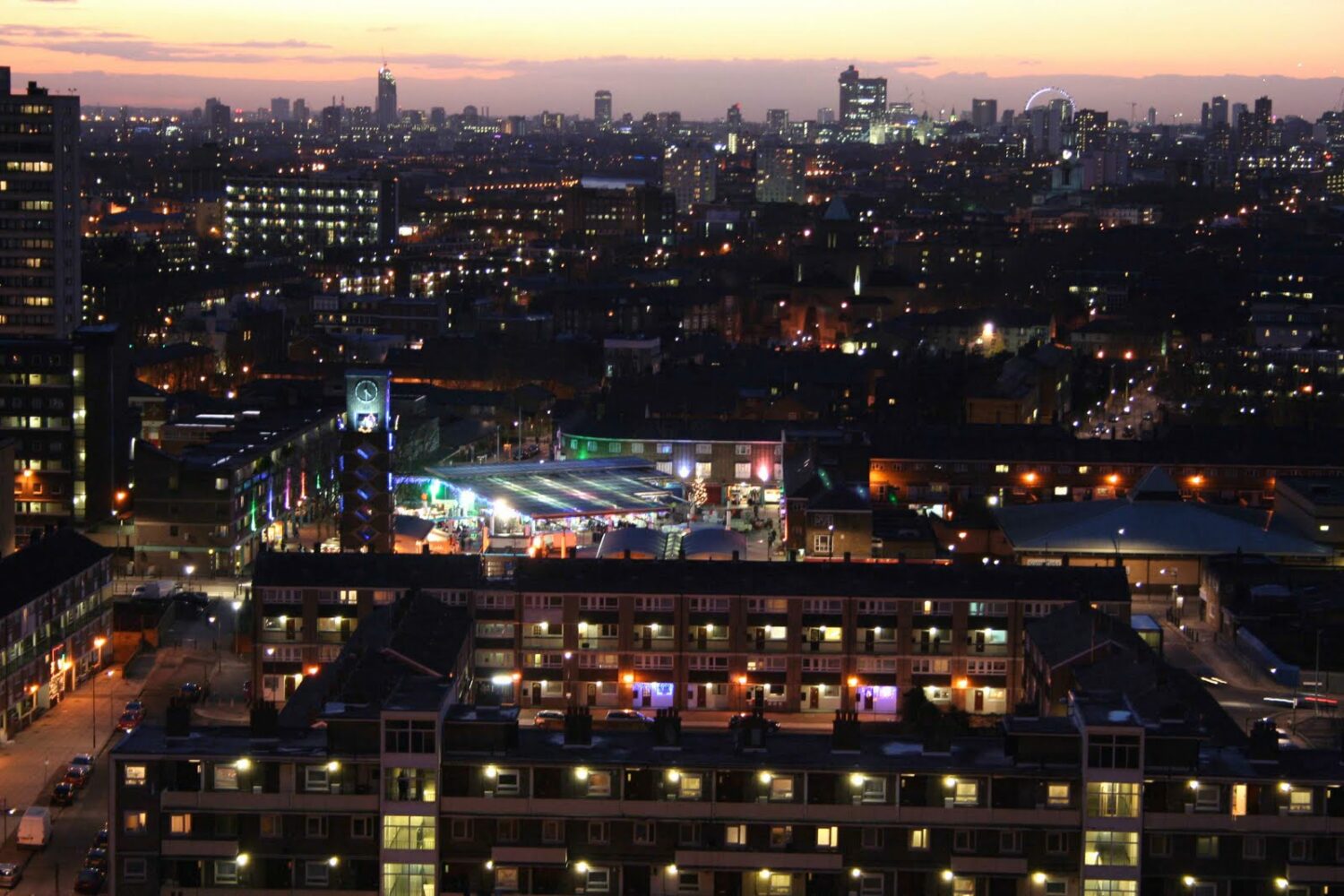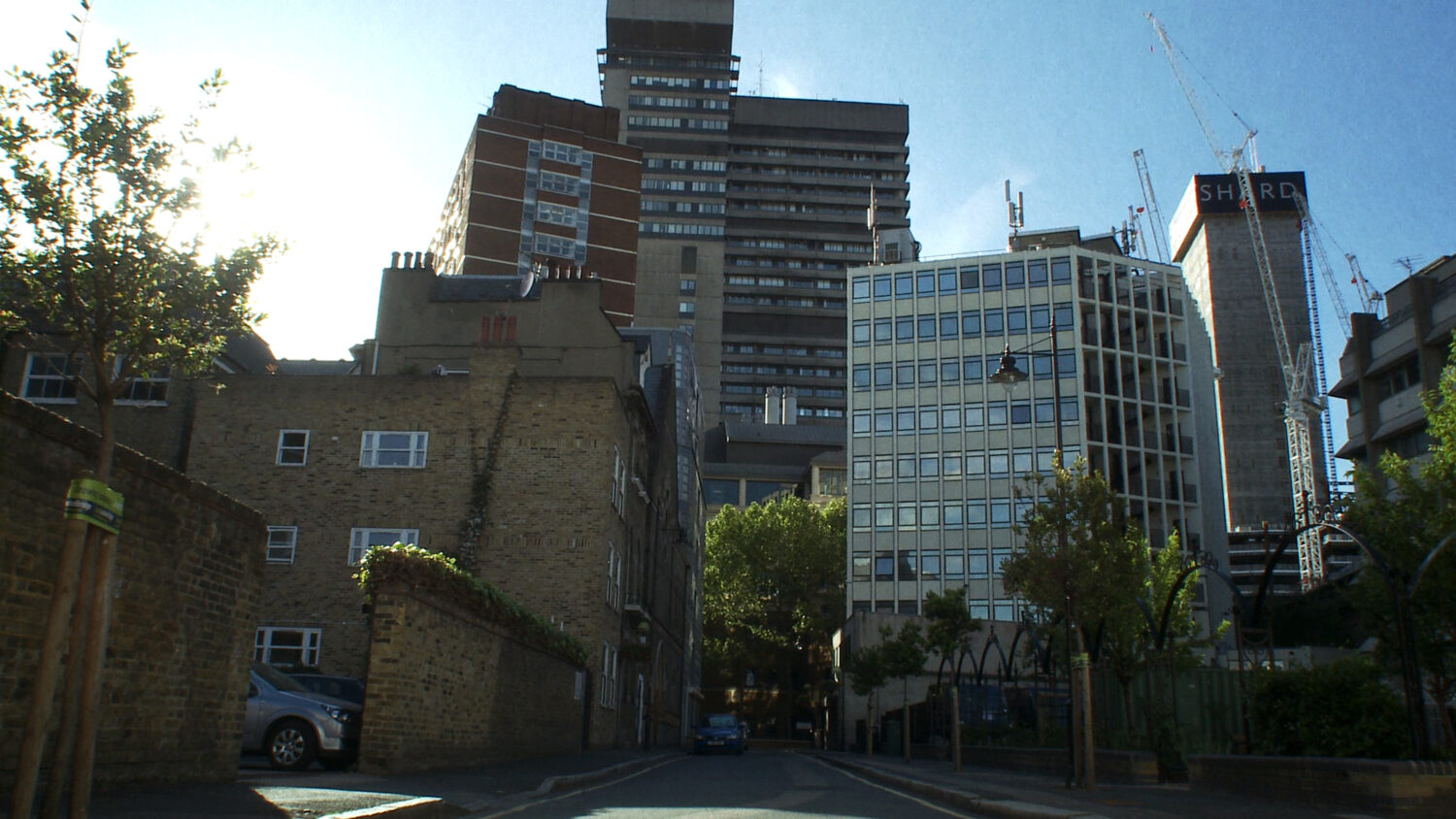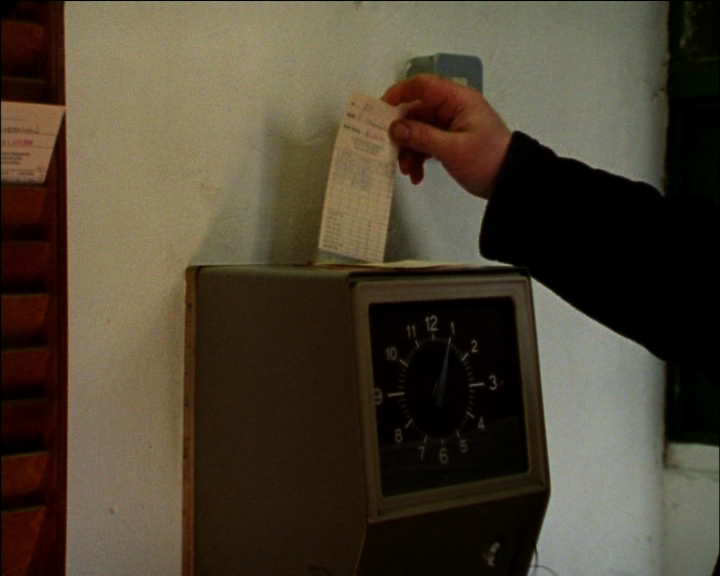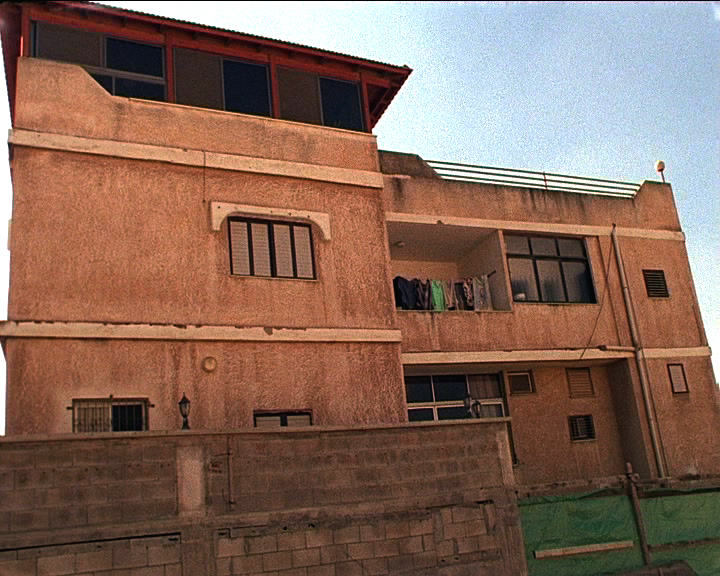The works brought together for this curated film series are an exploration of the politics and discourses around the home, wider environment and economy, presented as part of our Home Economics programme.
Rosalind Nashashibi’s Hreash House (2004), captures a single family as a community, as an extended Palestinian family occupy an entire tower block. Nashashibi captures the intimate nature of this family as they are seen celebrating after Ramadan.
The Home and the World (2010) by Lucy Parker captures the routines of a rural residential home for young adults with support needs, where activities like gardening are a central activity to nurture development.
Margaret Salmon examines A. H. Maslow’s ‘A Theory of Human Motivation’ in her film Pyramid (2014). Through careful orchestration, Salmon constructs an abstract documentary, which both develops and challenges the themes presented in Maslow’s theory as well as her own interest in human iconography, stereotype and domestic rhythm.
Ben Rivers’ Sack Barrow (2011) focuses on a small family run factory in the outskirts of London. Originally, set up in 1931 to provide work for disabled ex-servicemen, the factory finally went into liquidation in 2011. In June that year Rivers filmed the daily routines of the final month of the remaining six workers.
About Now MMX (2011) by William Raban explores the economic and social topography of the capital city. Mixing various times of the day and night and alternating between time-lapse and standard speed and from the perspective of the top floor of the Balfron Tower, this film captures the material impact of time in the wake of the 2008 financial crash.
Charlotte Ginsborg’s Melior Street (2011), takes its name from and is based in a street near London Bridge, in the capital city of London. The confused architecture of Melior Street acts as a backdrop to explore the lives of some of its eight residents. Through conversation and dialogue, they touch on relationships, belonging and the transient nature of one street in central east London.
Black Audio Film Collective, Reece Auguiste’s Twilight City (1989), focusses on six individuals based in London, each with their own perspective. Together they discuss how London has changed through the centuries and talk about the changes shaped by the Conservative Government throughout the 1980s.
Special thanks to LUX, London, Smoking Dogs Films and Lisson Gallery.




